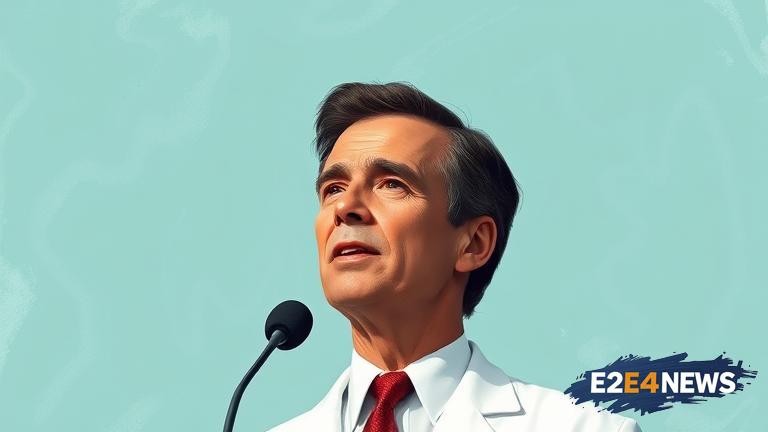Robert Kennedy Jr., the newly appointed Health and Human Services Secretary, has announced plans to overhaul the current cancer screening and preventive care system in the United States. According to sources, Kennedy Jr. intends to dismantle the existing preventive advisory panel, which he claims has been influenced by ‘woke’ ideologies. The proposed changes have sparked controversy among medical professionals and patient advocacy groups. Kennedy Jr. argues that the current system is flawed and that his reforms will prioritize evidence-based medicine and patient-centered care. He also plans to increase transparency and accountability within the healthcare system. The preventive advisory panel, which provides recommendations on cancer screenings and other preventive services, has been a cornerstone of the US healthcare system for decades. Kennedy Jr.’s plans to dismantle the panel have raised concerns among experts, who warn that such a move could lead to a decline in cancer screening rates and ultimately, an increase in cancer-related deaths. Despite these concerns, Kennedy Jr. remains committed to his vision for a reformed healthcare system, which he believes will better serve the needs of American patients. The proposed reforms are part of a broader effort to reshape the US healthcare landscape, with a focus on personalized medicine and innovative treatments. Kennedy Jr. has also announced plans to increase funding for cancer research and to promote greater collaboration between healthcare providers and patients. While some have praised Kennedy Jr.’s efforts to reform the healthcare system, others have expressed skepticism about the potential consequences of his plans. As the debate over the future of cancer screenings and preventive care continues, one thing is clear: the US healthcare system is on the cusp of a major transformation. The impact of Kennedy Jr.’s reforms will be closely watched by medical professionals, patient advocacy groups, and the general public. With the stakes high, Kennedy Jr. faces a daunting task in his efforts to overhaul the healthcare system and improve patient outcomes. The success or failure of his reforms will have far-reaching consequences for the health and wellbeing of Americans. As the situation continues to unfold, it remains to be seen whether Kennedy Jr.’s vision for a reformed healthcare system will become a reality. The coming months and years will be crucial in determining the outcome of this effort, and the future of cancer screenings and preventive care in the United States.
